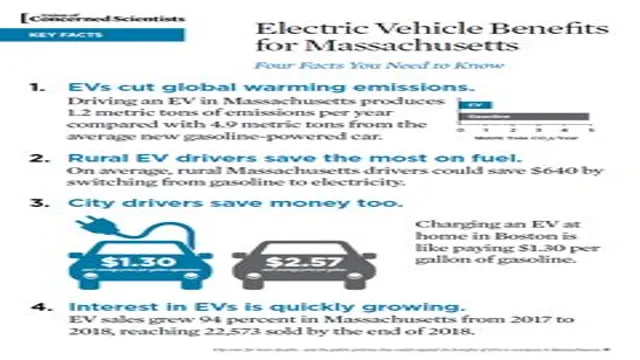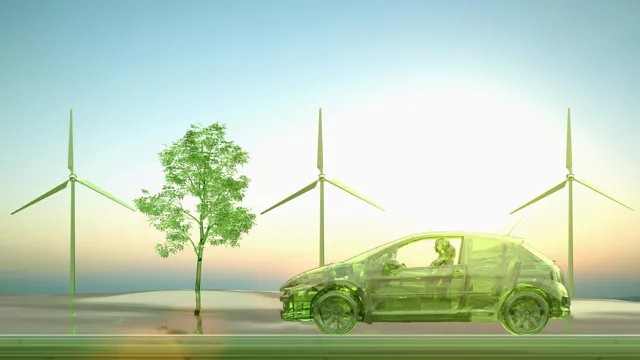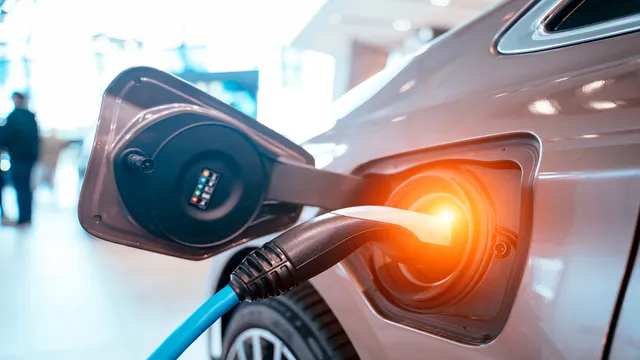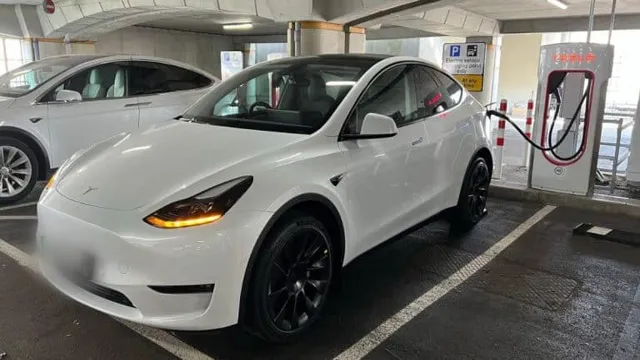Driving toward a greener future: How electric cars are the eco-friendly choice
Are you curious about the impact electric cars can have on the environment? The era of combustion engines is coming to an end, and electric cars are gaining popularity as a cleaner and more sustainable alternative. The benefits of electric cars are many – from reducing air pollution to saving natural resources and improving public health. These eco-friendly vehicles are taking the automobile industry by storm and reshaping the way we think about transportation.
Let’s dive into the reasons why electric cars are a game-changer for the environment and how they can contribute to a greener planet.
Reduced Emissions
Electric cars benefit the environment in numerous ways, with reduced emissions being one of the most significant advantages. Conventional cars emit a wide range of pollutants into the environment, including carbon monoxide, nitrogen oxides, and volatile organic compounds. These emissions can have severe impacts on our health and the planet’s climate.
However, electric cars do not emit any of these gases as they run on rechargeable electric batteries. This helps reduce air pollution and greenhouse gas emissions, making electric cars a more environmentally-friendly option. Switching to electric vehicles can have a significant impact on our planet’s health and reduce the carbon footprint, making them a viable option for those looking to help the environment while still enjoying the convenience of owning a personal vehicle.
Electric cars emit zero tailpipe emissions
When it comes to reducing emissions, the transition to electric cars is a game-changer. Unlike traditional gasoline-powered vehicles, electric cars emit zero tailpipe emissions. This means that as you drive, there are no harmful pollutants being released into the environment.
It’s a truly remarkable feat in the fight against climate change. Not only do electric cars provide a cleaner driving experience, but they also reduce our dependence on fossil fuels and help to decrease greenhouse gas emissions. It’s like switching from a light bulb that constantly emits heat to a more efficient and eco-friendly LED bulb.
Electric cars are not only a way to get from point A to B, but they’re also a step forward towards a greener future. By choosing to drive an electric car, you are making a positive difference for the planet and the future generations to come.
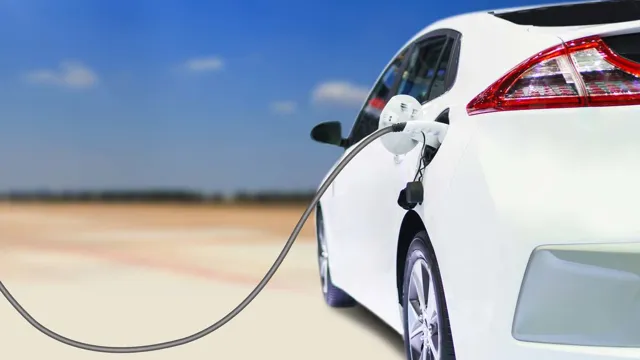
Electricity derived from renewables reduce carbon footprint
Renewable electricity sources, such as wind and solar power, are an effective way to reduce our carbon footprint. These sources of power do not rely on fossil fuels and therefore do not release emissions that contribute to climate change. By using renewables to generate electricity, we can reduce our dependence on non-renewable sources and help to mitigate the effects of climate change.
Additionally, renewable energy sources have become more affordable and efficient in recent years, making them a viable option for both businesses and individuals who want to reduce their impact on the environment. So, the next time you charge your phone or turn on your lights, consider the impact that your electricity source is having on the environment. By choosing renewable energy sources, you can help to reduce emissions and do your part to address climate change.
Improved Air Quality
Electric cars have numerous benefits for the environment, and improved air quality is one of the most significant ones. These vehicles produce zero emissions while running on electricity, which means that they do not emit harmful pollutants like carbon monoxide or nitrogen oxides into the air. This leads to a significant reduction in air pollution, which has numerous health benefits for people living in urban areas.
Additionally, electric cars are much quieter than their gas-powered counterparts, which means that they produce less noise pollution, another significant contributor to a decrease in air quality. Switching from fossil fuels to electric vehicles on a larger scale can help improve air quality, reduce health issues related to pollution, and lead to a more sustainable future. Thus, when you drive an electric car, you are doing a substantial service to both yourself and the environment as a whole.
Reduced emissions lead to less air pollution
Reduced emissions not only benefit our planet in terms of climate change but also have a positive impact on our immediate environment. One of the major benefits of reduced emissions is improved air quality. Air pollution has been a longstanding issue that has been linked to numerous health problems such as heart disease, respiratory illness, and premature death.
With fewer emissions being released into the atmosphere, the air we breathe becomes cleaner and healthier. By reducing the number of pollutants in the air, we are able to decrease the risks associated with poor air quality and enjoy a better quality of life overall. With every reduction in emissions, we take a step towards a brighter and healthier future for ourselves and the planet.
Electric cars run quieter, reducing noise pollution
Electric cars have been touted as environmentally friendly and fuel-efficient alternatives to traditional gasoline-fueled vehicles. However, one advantage that often goes overlooked is the reduction of noise pollution. Electric cars run much quieter than their gas counterparts, thanks to their electric motors that produce little to no noise.
This feature has significant benefits for urban areas, where noise pollution can negatively impact residents’ health and well-being. Reduced noise levels also allow for a more peaceful driving experience, without hearing the constant roar of an engine. As more people switch to electric cars, our air quality and general quality of life will improve by reducing noise pollution.
This is something to consider when weighing the benefits of electric cars beyond their environmental impact.
Reduced Dependency on Fossil Fuels
One of the key benefits of electric cars is the reduction in our dependency on fossil fuels. Traditional gasoline-powered cars rely heavily on fossil fuels, which are a finite resource and contribute to pollution and climate change. Electric cars, on the other hand, run on electricity that can come from renewable sources like wind, solar, and hydro power.
This means that the more electric cars are adopted, the fewer emissions will be produced by transportation. In turn, this can have a profound impact on the environment and the health of those living in urban areas with high levels of air pollution. With electric cars, we’re taking a step forward in reducing our carbon footprint and creating a more sustainable future.
Electric cars use no gasoline, reducing dependence on oil
Electric cars offer an excellent opportunity to tackle the issue of reducing our dependence on fossil fuels. Electric cars use batteries to power their motors, which means they rely solely on electricity from renewable sources such as solar or wind energy. This makes them highly sustainable and environmentally friendly.
When using electric cars, drivers don’t need to purchase gas or oil, which is a significant advantage over traditional cars. While oil is a finite resource, renewable energy is not, and electric cars can play a significant role in reducing the effects of climate change. Electric cars are also easier to maintain since they don’t have the complex engines and extensive mechanical parts that traditional cars have.
They’re also less prone to breakdowns, meaning drivers can save a lot of money on repairs. With electric cars, we can cut down our reliance on oil, reduce air pollution, and move towards a cleaner, more sustainable future.
Fewer oil spills and leaks from drilling and transport
Reduced Dependency on Fossil Fuels As we shift towards cleaner and greener energy, we can expect to see fewer oil spills and leaks from drilling and transport. The reduced dependency on fossil fuels can significantly impact the environment in a positive way. It’s not just the spills and leaks that cause harm; the entire process of extracting, processing, and transporting oil takes a toll on our planet.
We can reduce the number of oil spills by transitioning to alternative energy sources like solar, wind, and hydro power. Making the switch to renewable energy will not only benefit the environment but also create new job opportunities in the green energy sector. The transition is not easy, and it will take time, but it’s necessary to protect our planet for future generations.
So, let’s take the first step towards reducing our dependence on fossil fuels and making our planet a healthier place to live.
Long-Term Cost Savings
Electric cars are a great example of how technology can offer environmental benefits while also saving car owners long-term costs. While the upfront cost of purchasing an electric vehicle may be higher than that of a traditional gas-powered car, electric cars require less maintenance and are cheaper to run in the long term. The savings come from the fact that electric vehicles don’t require oil changes, spark plug replacements, or other routine maintenance that can add up over time.
Moreover, the cost of electricity is generally less than the cost of gasoline, which means that the cost to recharge an electric car is typically much less than filling up a gas tank. The benefits to the environment are equally impressive. Electric cars produce zero emissions, which means that they don’t pollute the air we breathe.
This is a game-changer in areas where air pollution is a problem. Additionally, electric cars are much quieter than traditional cars, which have the added benefit of reducing noise pollution. All of these factors make electric cars a win-win for both car owners and the environment.
Electric cars have lower maintenance costs than traditional cars
Electric cars are becoming increasingly popular, and for good reason. Not only are they better for the environment, but they also have lower maintenance costs compared to traditional cars. This is because electric cars have fewer moving parts, which means there are fewer parts that can break or require maintenance.
For example, there is no need to change the oil or replace the spark plugs in an electric car. In addition, electric cars have regenerative braking systems that help to prolong the life of the brake pads. Although the initial cost of purchasing an electric car may be higher than that of a traditional car, the long-term cost savings can be significant.
Not only do electric cars require less maintenance, but they also have lower fuel and energy costs. So if you’re considering purchasing a car, it’s worth considering an electric car for the long-term cost savings.
Electricity costs are generally lower than gasoline costs
When it comes to comparing the cost of running an electric car versus a gasoline-powered one, one of the most significant advantages of electric cars is their lower long-term cost. When you compare the cost of electricity versus gasoline, the difference is quite substantial. The average cost of electricity in the US is around $0.
13 per kWh, while the cost of gasoline per gallon is around $50. On a per-mile basis, this translates into electric cars costing around $0.
04 per mile to run, compared to gasoline-powered cars, which cost around $0.12 per mile. This means that, over time, the savings from running an electric car can add up significantly, making it a cost-effective option for those looking to reduce their long-term transportation costs while also reducing their environmental impact.
Think about it this way: when you invest in an electric car, you’re essentially investing in a vehicle that will save you money over the long-term. While the initial cost of purchasing an electric car might be higher than a gasoline-powered one, the ongoing savings will eventually pay off. Additionally, electric cars tend to require less maintenance than gasoline-powered cars, meaning that you’ll save even more money in the long run.
So, if you’re looking to save money on your transportation costs while also reducing your carbon footprint, switching to an electric car is an excellent option.
Conclusion
In conclusion, electric cars have proven to be a game-changing innovation in the global fight to protect the environment. By utilizing clean energy sources, emitting zero emissions, and heavily reducing our dependence on fossil fuels, electric cars are leading the way towards a sustainable future. So, when you’re cruising around in your electric vehicle, not only are you saving money on gas, but you’re also doing your part to reduce your carbon footprint and safeguard the planet for future generations.
As they say, “Drive electric, save the planet!”
FAQs
How do electric cars benefit the environment?
Electric cars benefit the environment in several ways. They emit fewer greenhouse gases and air pollutants compared to traditional gasoline cars, which reduces the carbon footprint. They also help to reduce noise pollution and dependence on non-renewable energy sources.
Are electric cars really better for the environment than gas-powered vehicles?
Yes, electric cars are better for the environment as they produce lower emissions of greenhouse gases and pollutants, resulting in cleaner air and less damage to our ecosystem.
Can electric cars help combat climate change?
Yes, electric cars are a significant step in the fight against climate change as they can reduce greenhouse gas emissions up to 70% compared to gasoline cars.
Do electric cars produce any emissions?
Yes, electric cars produce emissions in the form of fine particles from brake and tire wear, as well as particulate matter that is released in the manufacturing and charging process. However, the emissions are significantly fewer than those of traditional gasoline cars.
